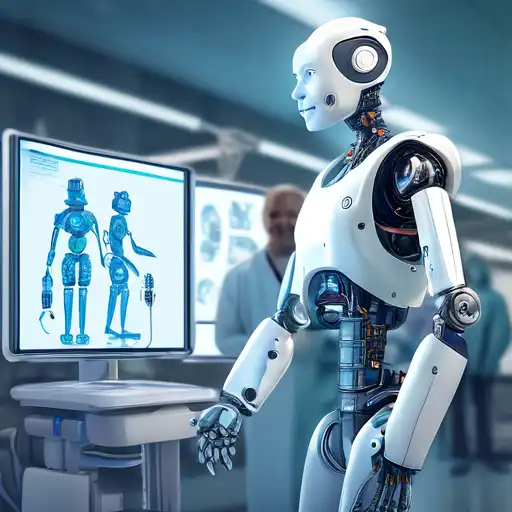The Dawn of Robotics in Healthcare
In recent years, the integration of robotics into healthcare has marked a revolutionary shift in how medical services are delivered. From surgical robots to robotic prosthetics, the advancements in this field are not just enhancing the quality of care but are also making it more accessible and efficient.
Revolutionizing Surgical Procedures
One of the most significant contributions of robotics in healthcare is in the realm of surgery. Robotic-assisted surgery allows for unparalleled precision, reducing the risk of complications and improving recovery times. Surgeons can now perform complex procedures with more accuracy than ever before, thanks to technologies like the Da Vinci Surgical System.
Enhancing Patient Care with Robotic Prosthetics
Another area where robotics is making a profound impact is in the development of prosthetic limbs. Modern robotic prosthetics are equipped with sensors that mimic the movement of natural limbs, offering amputees a new level of mobility and independence. This innovation is not just about replacing lost limbs but about restoring hope and improving the quality of life for patients.
Robotics in Rehabilitation
Rehabilitation is another field benefiting from robotic technology. Robotic exoskeletons, for example, are helping patients with spinal cord injuries to walk again. These devices support the body's weight and facilitate movement, enabling patients to regain strength and mobility through guided therapy sessions.
The Future of Robotics in Healthcare
As we look to the future, the potential applications of robotics in healthcare are boundless. From robotic nurses that can assist with patient care to AI-driven diagnostic tools, the possibilities are endless. The key to unlocking this potential lies in continued innovation and collaboration between technologists and healthcare professionals.
For more insights into how technology is shaping the future of healthcare, explore our healthcare innovation section.
Challenges and Considerations
Despite the promising advancements, the integration of robotics into healthcare is not without its challenges. Issues such as high costs, the need for specialized training, and ethical considerations must be addressed to ensure that these technologies benefit all segments of the population equally.
In conclusion, robotics in healthcare is indeed a game changer, offering solutions that were once deemed impossible. As technology continues to evolve, so too will its applications in medicine, promising a future where healthcare is more precise, personalized, and accessible to all.
